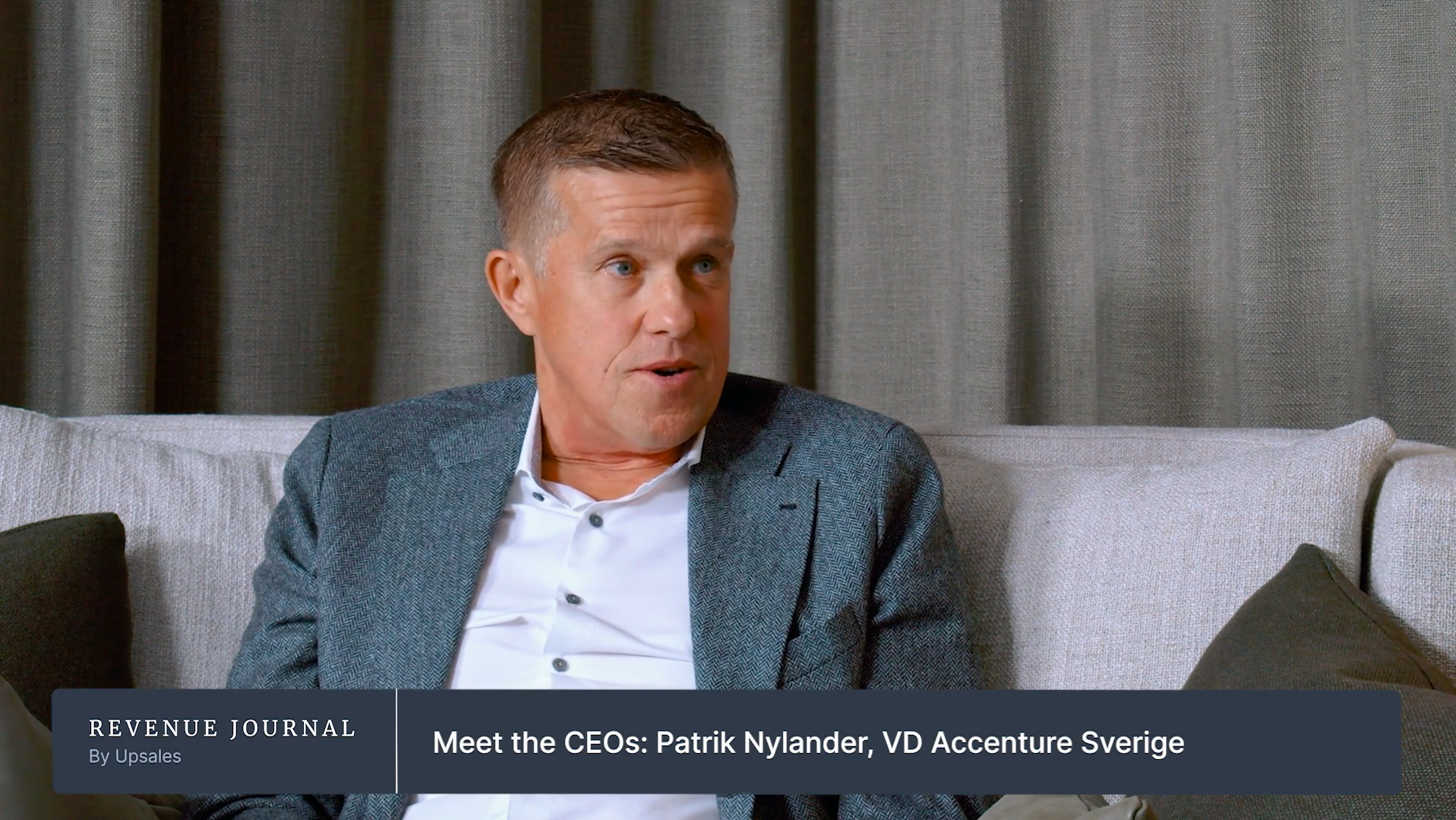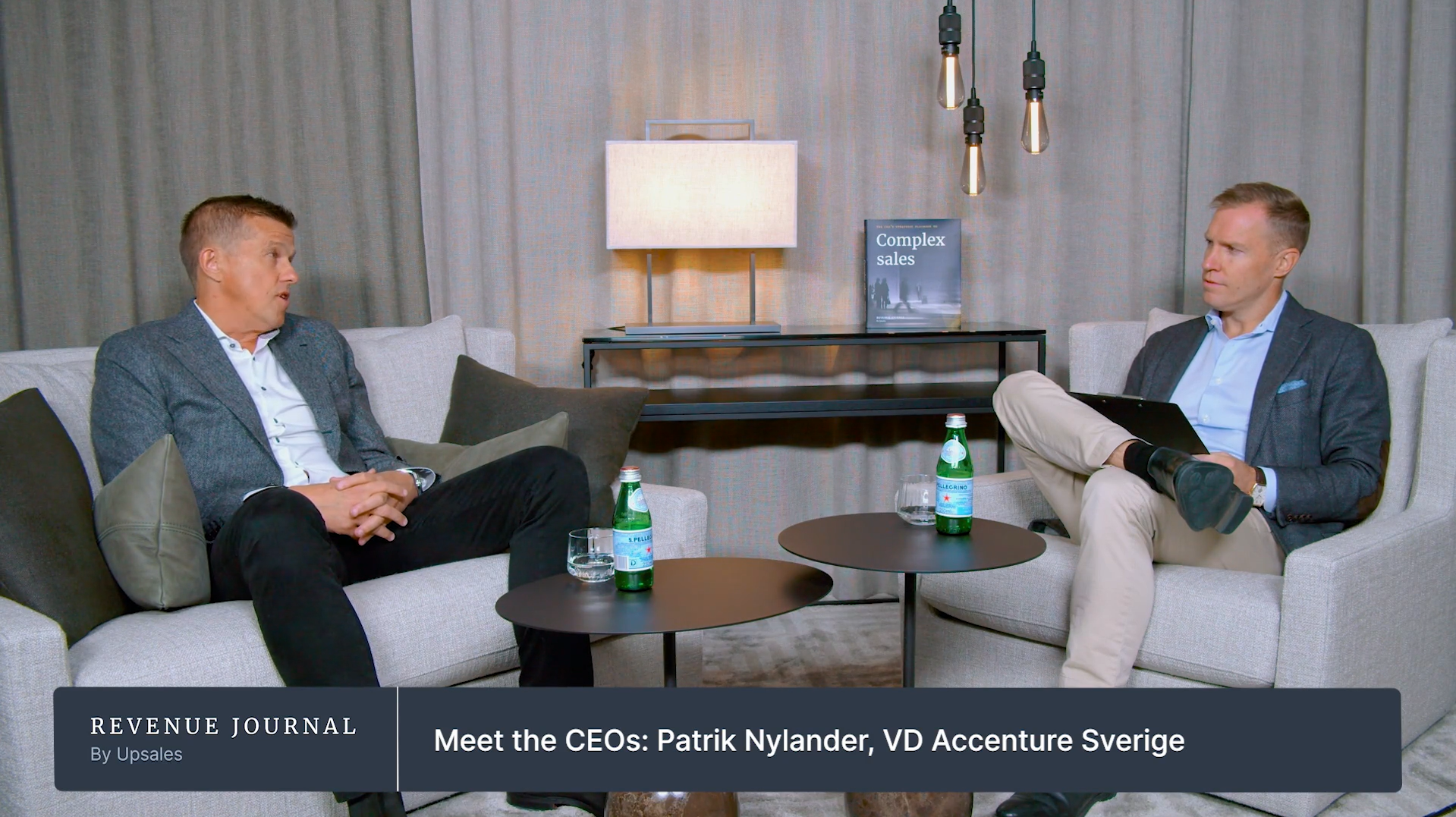In January, Accenture released a report during Davos showing that Swedish business leaders often view AI as a threat, while international leaders primarily see it as an opportunity.
Patrik, who has led Accenture’s major digital transformation and AI initiatives, shares his perspective on how Sweden views AI, the changes needed for growth in a rapidly shifting market, and how companies can leverage AI to boost their competitiveness.
Here are 5 takeaways from Patrik’s interview: keys to driving growth in an AI-driven future.
1. Swedish companies view AI as a threat more than their international competitors
Patrik begins by noting that Swedish business leaders often see AI as more of a threat than an opportunity. According to Accenture, 76% of global leaders view AI as an opportunity, but only 26% of Swedish leaders feel the same way. This difference could hold Sweden back, even though it has historically been a leader in adopting new technology. It's crucial, he says, for Swedish companies to embrace AI's potential to stay globally competitive.
"Sweden has always been good at adopting new technology. Being an early adopter has almost become a defining trait for us. However, with this technology, which could be one of the biggest changes ever, we seem a bit hesitant. That's something we need to work together to change," says Patrik.
2. Swedish companies need to become more flexible across the entire value chain – with improved real-time data and responsiveness
Many Swedish companies have built their structures around stability, but today's fast-changing market requires flexibility and quick adaptation. Patrik points to the need for operational models that enable data to flow across the entire value chain. To respond to rapid changes, companies need better real-time data and systems that can simulate various scenarios.
"The volatility around us keeps increasing, which makes it more important than ever for companies to react quickly. Businesses need to be more flexible across the value chain to stay competitive and keep growing," Patrik emphasizes.

3. The focus has shifted from strategy to practical implementation of AI, with a desire to see results
Accenture promotes "Total Enterprise Reinvention," a comprehensive transformation where the entire organization must adapt to today's digitalized world.
Patrik explains that Accenture recently launched a three-year, $3 billion investment in AI, implementing the technology in nearly all internal processes. Forecasting, which previously required substantial manual time, is now handled by AI, allowing faster and more accurate analysis of historical data and other variables. They also use AI for staffing and performance evaluation, where the system summarizes both quantitative and qualitative performance for each individual – and the results have been impressive.
"External development is also essential for us. We have opened several Gen AI studios around the world, where, together with software partners and innovative startups, we explore practical AI applications in our clients' operations. The focus has now shifted from strategy to practical implementation and scalable solutions, as many business leaders want to see real value and tangible results rather than a prolonged phase of tests and pilots," Patrik explains further.
4. Clear communication is key to getting employees on board
DigitalTolk has a large network of interpreters that they work with regularly, all of which are working with the company on a freelance basis.
To get everyone in the organization on board with AI, there must be clear communication about the purpose behind the changes. Accenture invests in programs to promote employees' mental and physical well-being. Inspired by sports, Patrik believes that a supportive work environment makes employees more engaged and ready to embrace new technology.
"We try to be very clear about what we want to achieve and why. We draw from sports principles: it's about performing at your best when it matters but also being able to maintain that level over time," Patrik says, emphasizing the importance of creating a solid foundation for employees.
5. Build a culture of change and move away from areas that are becoming commoditized
One of Patrik's key strategies to meet future challenges is creating a culture where change is the norm. He highlights the importance of constantly moving away from areas that are becoming commoditized and always staying one step ahead. Patrik describes how Accenture uses a "pace of change" as a growth driver, aiming to exit areas as soon as they become too established and margins begin to shrink.
"We have to constantly change to stay profitable. By the time others catch up with us, we should already be onto the next thing," he explains, underscoring the importance of always staying a step ahead.










